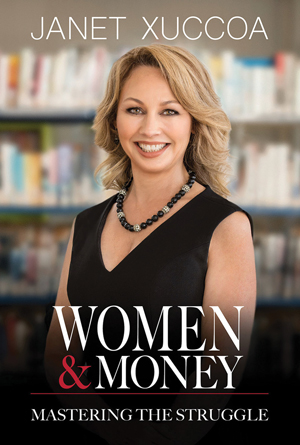Money Talks 1: Setting Yourself Up
Santa’s been and gone, Christmas dinners have been eaten and a brand-new year has arrived. Synonymous with popping champagne corks ushering in the New Year, is the making of resolutions. If one of your New Year resolutions is to be more successful with money, keep reading as these 5 pointers will help you improve your financial health in 2022.
Pointer 1.
The relationship we have with money prevails for the whole of our life. Because its enduring and has such a dramatic impact on the quality of life we live, it’s crucial we understand it. It’s also vital we set the rules we want to conduct our money relationship on, because good or bad, it’s a relationship we can’t write out of our lives.
Part of developing a healthy relationship with money involves conscious thinking. In particular, we need to identify our money beliefs. Most of us subconsciously adopt the views of our family members and peer groups. Race, culture, religion, upbring and education are primary factors that shape our thinking. When you understand how these factors influence your money beliefs, you can decide if the views you hold serve you well. Frequently they don’t. You may find you’ve subconsciously adopted the beliefs of well-meaning family and friends, hailed from yesteryear, originating from an entirely different world than the one you inhabit today.
When you gain an appreciation of why you think and feel about money how you do, you’re in a position to set your own money rules that serve you. We’ll look at this in greater depth in our next article.
Pointer 2.
Irrespective of whether you’re the New Zealand Government, a leading corporate dominating our business landscape or an individual, you must know what is coming in and what is going out to build a successful financial future. Simply, you need to become proficient at cash flow management. To my mind, this involves engaging in the continuous exercise of balancing income against expenses so you can achieve your money goals.
The first step in practicing cash flow management is to identify all sources of income you have coming in. Most people are pretty good at this. It’s the second step in the exercise that trips people up – correctly recording all expenses incurred, the time those expenses land and becoming acquainted with discretionary spending habits. If this sounds familiar, review bills, credit card statements and bank statements to help you identify where your hard-earned coin goes.
To be truly victorious in your endeavours you’ll need to be diligent in gathering and recording information on income and expenses. Some people use computer programmes, others Excel spreadsheets. It’s irrelevant how you record your money in and money out – what’s important is you get the job done and it’s done accurately. Developing a consciousness of how your money flows will help you carry out the third pointer.
Pointer 3.
Knowing the state of your own nation – money in and money out – will permit you to establish money goals. Money objectives differ from person to person but commonly include controlling discretionary spending habits, repaying debt, establishing emergency funds, saving for a particular item and investing.
Establishing financial objectives is well and good, but unless a plan is formulated and enacted, your goals are just a wish list. Thus, you need to write down how you’re going to achieve your aspirations. Will you put in place a bank account system to manage your money more effectively? Will you adopt a specific repayment strategy to repay credit card debt? Whatever action you’re intending to take, be sure to write it down. Additionally, note the dates you’re expecting to implement your actions and achieve your objectives.
Remember, Rome wasn’t built in a day and achieving money goals often takes time. What’s important is planning what you’re going to do and then putting in the effort to enact your plans. Don’t forget to review what you’ve done on a week-by-week basis too. Evaluating our efforts helps us keep on track towards achieving our objectives. We’ll canvass this topic too in future money articles.
Pointer 4.
We all feel good when we have money saved so tucking dollars, cents and euros away for a rainy day is a sensible thing to do. The easiest way to save money is never to see it in the first place. What you don’t see, you won’t spend.
I’ve long been a strong advocate of paying yourself first. To achieve this, have a certain amount of money automatically credited from your cheque account into your savings account each time you get paid. The amount you stipulate should be something to which you can commit. Set up the automatic payment to trigger the day after you receive your wages/salary.
You may think the amount of money you can save is inconsequential and therefore not worth the bother. That is a mistaken belief. The size of your contribution to your savings account is irrelevant. Make the deposit every single time you receive your wage cheque. Develop this habit. As Nike say’s ‘Just Do it.’ Psychologically as you see your savings balance grow, your focus on controlling your money will increase as will your sense of personal empowerment.
Pointer 5.
One of the secrets to building wealth is to invest in assets that appreciate. Time is your friend in this regard. Being a long time in a market that appreciates will do wonders for your wealth health. Before taking steps to invest, however, you need to gain an education. Look at the main categories people invest in such as shares, superannuation funds and property and then pick a category. Read widely and regularly on your investment category choice. Attend free seminars run by reputable people. For instance, leading wealth houses such as Craigs, Milford and Forsyth Barr run free seminars throughout the year, especially for women, on share investing.
 Once you understand your choice of investment, seek professional help. Ensure you procure help from reputable sources. Check out companies and peoples credentials. Only invest when you understand what you are investing in, and the risks associated with the investment as well as the potential to grow your investment.
Once you understand your choice of investment, seek professional help. Ensure you procure help from reputable sources. Check out companies and peoples credentials. Only invest when you understand what you are investing in, and the risks associated with the investment as well as the potential to grow your investment.
Much to individuals detriment, many think the amount they can afford to invest is so negligible, it isn’t worth the effort. This is yet another fallacy. Share investing for example, doesn’t necessarily have to be a big-ticket item. You may start simply with $200 in say a platform such as Sharesies. What’s important is you educate yourself and take steps to begin your investing journey. Remember, only invest after you have received unbiased professional advice and only after you understand what you are investing in.
Janet Xuccoa is a successful professional, holding commerce and a law degrees. She acts as in-house general legal counsel for Greenlion and leads their trustee services division, helping people protect their wealth for themselves and their loved ones.
She has written several books on money and trusts. Her latest book, ‘Women & Money: Mastering The Struggle’ is an easy read, furthering women’s financial education and empowering them to build the financial lives they want to lead.
Read more from Janet’s Money Talk Series here.

